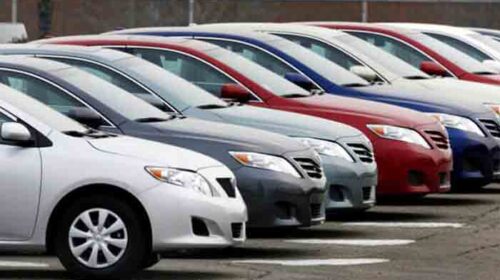Pakistan Automotive Manufacturers Association (PAMA) has called out the government for demanding to rationalise car prices and said the country had a free market, and it was the market that decided prices, not the state.
The auto industry is linked to the international market. The raw material and parts’ cost are very different and the government cannot fix car prices,” replied PAMA Director General Abdul Waheed Khan to a query.
In a meeting of the auto industry monitoring committee last week, the government officials have again asked auto assemblers to rationalise the significantly high car prices despite tax incentives given to them.
They have formed a committee including officials of Paapam, Competition Commission of Pakistan (CCP), State Bank of Pakistan (SBP), Federal Board of Revenue (FBR), Ministry of Commerce and Ministry of Industries and Production.
Waheed said that Pakistan has a free market and there was a market mechanism. Pakistan does not have a centrally planned economy like a communist state and therefore the government could not fix car prices. Manufacturers have responded to the government query as to why car prices were jacked up, “but the government officials say they would go for an expert opinion on this,” he informed.
The Ministry of Industries and Production took notice of the recent round of car price hike, after the Public Accounts Committee (PAC) directed to check the reasons.
A source in an OEM said that 70 percent to 80 percent of an average passenger car was made up of some grade of imported steel. Therefore, car prices were directly linked to steel prices as well.
Waheed said that freight charges have increased by 300 percent, exchange rates have gone up and raw material prices have also increased.
“And when these costs go up, duties on these also go up similarly, which forces car assemblers to jack up car prices,” he said.
Paapam Chairman Abdur Razzaq Gauhar said that they were now forming TORs of car pricing. Data would be checked and it would be made known how much impact exchange rates have on cars.
“Cars are assembled locally, therefore they shouldn’t be completely pegged to dollar rates,” Gauhar said.
Global data and multiple value-addition details would be examined to determine if there was actually a problem or it was just a perception that car assemblers increased prices without reason.
“I am hopeful that we would identify if there’s a problem,” Gauhar said. “But I cannot assure a solution.”
A source in the Engineering Development (EDB), the regulator of the auto industry, said that the government has given many incentives in different policies for the auto industry therefore it has the right to question and check intermittent price hikes.
However, a source in the auto industry said that the government takes notice when there’s hue and cry from the public, but when it subsides the government forgets about it.
The Ministry of Industries and Production also took notice last year asking car companies to provide justification for raising car prices. The letter instructed automobile manufacturers to provide their costing structures failing which, price fixation proceedings would need to be carried out unilaterally.
The letter added that it was unacceptable and the government might have no recourse but to initiate regulatory measures, which include fixation of prices under the Price Control and Prevention of Profiteering and Hoarding Act, 1977.
But auto companies said that international commodity prices, freight costs and rupee devaluation have forced them to jack up car prices.







